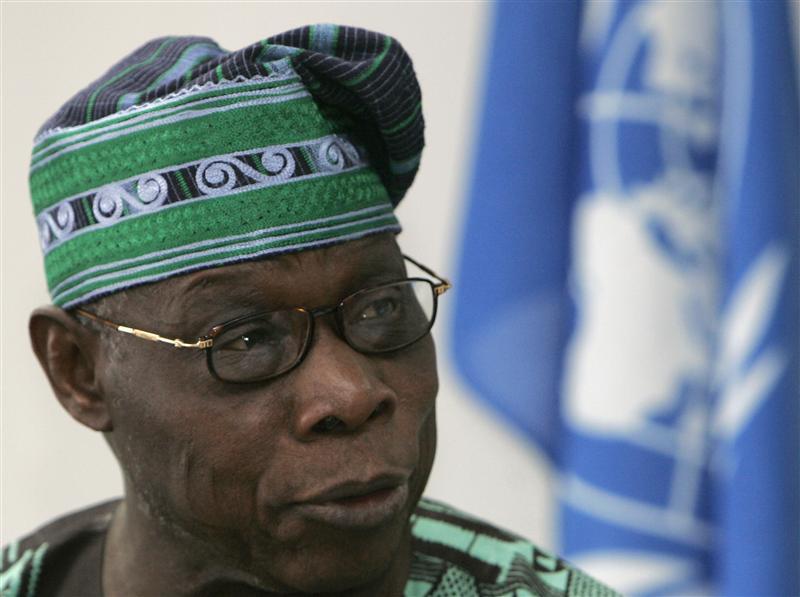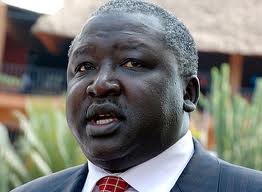During their lunch break at the Conference Center of the swanky Kampala Serena, diplomats emerged and filed past mostly quietly. The buffet was set up 20 meters away. It was to be a quick lunch and then another 3 hour closed session was meant to follow. Rwandan Foreign Minister Louise Mushikawabo in a grey fitting suit and black high heels was one of the last to leave the meeting room. She was flanked by a flurry of Rwandan officials. One of them was talking into her ear. She hung to her bag and gave answers while staring at the floor. Since newspaper headlines started denouncing Rwanda from afar followed by the strong language that aid cuts are supposed to represent, the air has been filled with the strong smell of “something important is about to happen”. As foreign-service officers, politicians and their minders filled the hotel lobby with shuffling of feet and paper- one recalls the other crisis, of food, bullets and refugees.
The Rwandans and the Congolese are in a spotlight here. An agreement in Kampala will offer some relief for Kigali, which has been taking a “shellacking” of its carefully constructed international image. The meeting today was mainly of top diplomats and some securocrats. Flies on the wall say not much “progress has been made”. Progress here involves one item really: some sort of multi-national regional army to generate a ceasefire and an environment for politics and diplomacy to take hold of the situation in Eastern Congo.
Since President Yoweri Museveni called for this extra-ordinary summit, the backroom diplomacy (often one on one meetings between one-time-friends-turned-foes-and-friend-again) have rivaled the formal diplomatic enterprise that has erupted around the rebellion in the Kivus.
Little is known publicly about the rapport between the Presidents at the center (their names all start with K: Kabila, Kagame, Kaguta).
Museveni, the convener of the talks, has used the International Conference of the Great Lakes Region (ICGLR) to bring the issue of M23 and the consequent accusations against Rwanda to the table. Prior to heading to an African Union conference that begun this round of talking, Museveni, according to his Prime Minister Amama Mbabazi was talking to Congo’s Joseph Kabila. He was probably in touch with Paul Kagame as well. Kabila’s attendance is a key test for the conference.
In the Ethiopian capital Kabila and Kagame would eventually meet for a full hour. And then thirty more minutes extra time according to diplomatic sources. It’s unclear what they discussed. “ It was a good sign,” said one old hand at the ups and downs of the relationships between the men. There was a rumored diplomatic egg-in-the-face apparently when senior African Union and United Nations officials were barred from the smaller meetings of the Rwanda-Congo-Uganda club. Allegedly of course.
Later President Museveni travelled to Luanda to meet Dos Santos, the Angolan President. Very likely many hours have also been spent by Mr. Museveni on the phone not to promote the summit (the hastily called meeting is showing the signs of its rushed commencement. As late as mid-last week the Ministry of Foreign Affairs was pushing the red tape to have funds released for its visitors). Mr. Museveni was likely trying to forge agreement on how to pacify Eastern Congo- with a military force that is African and acceptable to the capitals around the Great lakes.
That acceptability is very much a domestic thing and evolves around the interests of power in the capitals (again all with a K: Kampala, Kigali and Kinshasa). Even if the Presidents were able to come to a private agreement (made easier by their collective bullying at the hands of Western powers who make history by switching sides as often as is required) supplying a military force that fits into the language and context of the Congo (and the global concerns for it) today is proving to be a nightmare.
It appears after Addis Ababa, defense and security leaders could not agree on a force at their meeting in Khartoum. In Kampala, the nature of the force has become the main sticking point in the negotiations and a lot rides on it. One elephant in the room is what to do about the large but perhaps discredited UN force in the Congo, with its billion-dollar economy. The UN family will likely resist or act as a spoiler for any real changes in its status as it has done in the past and quite simply its about the economic behemoth that squats in the midst of the present crisis as it has in the past.
According to sources within today’s meeting there was “consensus that the UN force needed to be assisted” code for additional troops. The problem now is that East African countries seemed aligned: they would like an East African force perhaps including both Rwandan and Ugandan troops, while the South African regional grouping SADC, too would, say those in the know, like a force of their own. This tension within the African family may not be resolvable by diplomats but await the heads of state.
I heard some frank comments by some diplomats engaged in the talks. One pointed out that Uganda and Rwanda have a history with Congo, which has been hostile even to deployments by the UPDF to hunt down the notorious Joseph Kony. A force composed of forces from the two countries would need the personal endorsement of Joseph Kabila. However if United Nations Inc and other SADC opponents are against this it’s unlikely to happen. And there is a lot in their corner including the barking dog at the Hague which has become a vanguard of regime change lingua that frightens the be Jesus out of the type of state-houses we have. But most importantly regional forces of whatever form need to be paid, equipped and supplied. Even if an agreement succeeds today without “donor buy-in” its unlikely to survive. Then there is that bane of African peacekeepers as with other peacekeeping efforts: corruption and accountability.
This even though after Somalia, which Uganda and Burundi shouldered alone for years despite promises by other countries, committed armies interested in intervening in the East are within this region. It’s a tough call.
In the heat of the discussion about Rwanda and M23, largely as a humanitarian question and one involving western donor countries and their ideas of what would work in the region, the politics of “intervention” in the Congo has largely been set aside. Kabila, Museveni and Kagame are all one-time allies, fighting together at one point in a joint force to depose the late President Mobuto Sse Seko. After their equally epic fall-outs this point, of whether their “history of violence’ can form a basis for cooperation may not hold. But the stakes, like a Rwandan diplomat said, are high because “there are many interests” in the Congo. So far the interests most debated are that of Rwanda. Perhaps we can return to the other players soon. This canned version of history of course may be deliberate or utilitarian depending on one’s view and politics. Many scenarios can develop in the Congo.
Somewhere on my shelf is a book autographed by Amb. Princeton Lyman, a report by the Council on Foreign Relations on US Africa policy titled “ More than just Humanitarianism: A strategic US approach towards Africa”. If the myth of an East African “foreign policy” in the Congo could answer would it be “ More than just Conflict”? This eventually would need to be the direction of change in the east of that beautiful country.









